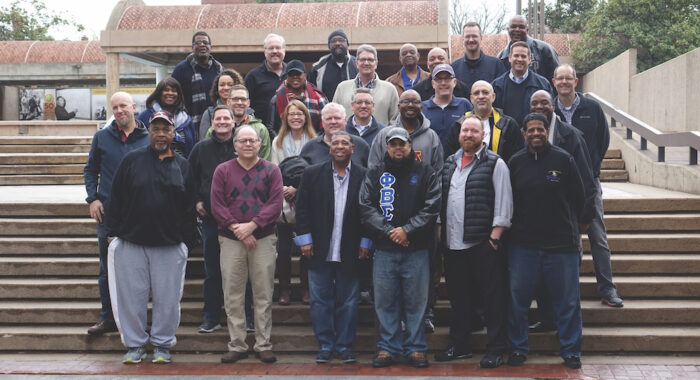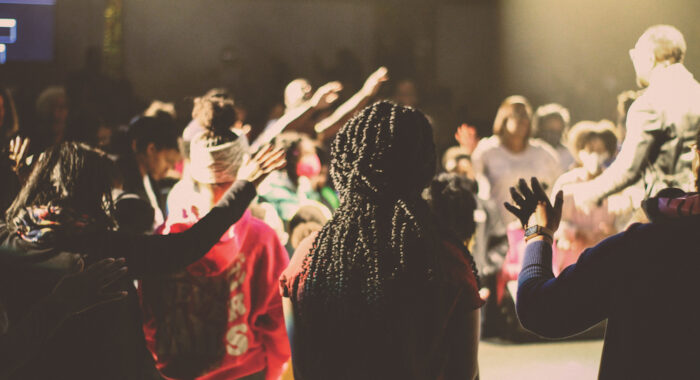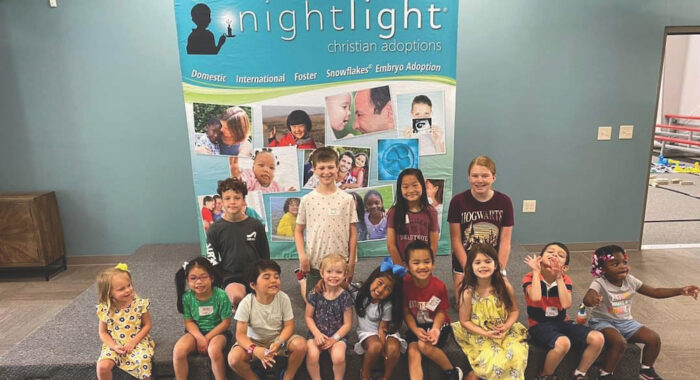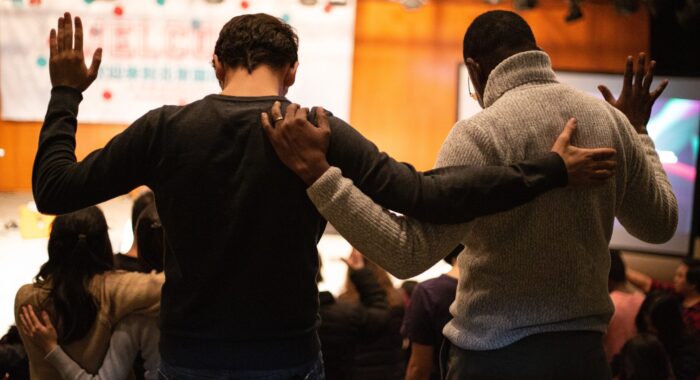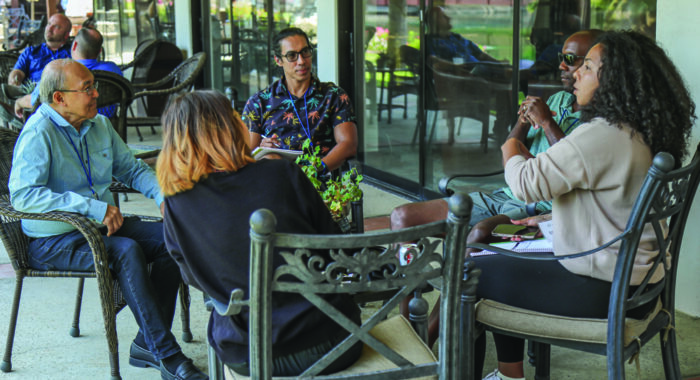Let’s start with the easy part. God envisions a multicultural kingdom on this earth.
Revelation 5:9–10 says, “… you [Jesus] were slain, and with your blood you purchased for God persons from every tribe and language and people and nation. You have made them to be a kingdom and priests to serve our God, and they will reign on the earth.”
The passage tells us that one day, God will take individuals from every tribe, every language, every people, every nation and create a single kingdom. This multicultural, multilingual, multinational kingdom will serve God by becoming his priests and will exercise authority in this world.
This idea is not controversial. What is controversial is the question of how God’s vision of a future multicultural kingdom should manifest itself in the present in our local churches, denominations and other Christian institutions.
The question came up for me because as an Old Testament scholar, God called me to help a predominantly white church become more multicultural. After I took the job, I realized I needed to figure out what it means to be “more multicultural.” One answer lies in statistics. A popular metric says a church is multiethnic if no single ethnic group comprises more than 80 percent of the congregation. If that were what it means to be “more multicultural,” my job would not be that complicated. I would need to find ways to increase minority attendance, perhaps by changing how we do advertising, online branding, staff recruiting, etc.
But is that really the answer? Are we missing something?
Why Does God Want a Multicultural Kingdom?
As I thought more about this, I realized what I needed was to ask a prior question: Why does God want a multicultural kingdom? We know he wants one, but why? Knowing why would tell us the essentials, the must-haves, of this multicultural kingdom.
I found my answer in the Bible, and I’ll put it upfront: God wants a multicultural kingdom, because a multicultural kingdom images God to the world.
We’re familiar with the idea of humans being created to be the image of God in Genesis 1. “Image of God” in Hebrew is selem elohim, and this phrase refers to something physical that represents the essential qualities of a deity. So as a human being who images God, I have eyes, God can see; I have ears, God can hear; I have a mouth, God can speak. My personhood tells us that God is a person. To be God’s image means I communicate his essential qualities.
What is often neglected when we discuss this concept is that this imaging function isn’t limited to just the individual; we also image God in community. For example, a marriage between a man and a woman images God’s love for his people. This theme is repeated throughout the Bible: God is the husband, and Israel is the wife; Christ is the husband, and the Church is the bride. Thus, the union of two different sexes represents God’s love for a people different from him.
This theological basis for biblical sexual ethics also serves as the basis for God’s vision for a multicultural kingdom. God wants his people to be multicultural, multiethnic and multinational, because he wants to create a community that reveals his love that crosses differences. He wants to create such a community in this world, because we humans are not wired to love this way. We are wired for tribalism.
Our Tribalist Instincts
When I walk into a room full of strangers, my first instinct is to scan for someone whom I think I can connect with — someone my age, my background, maybe someone in my ethnic group. This is basic to who we are as humans. But this most basic of human instincts leads us to form groups of similar people and look down on and fear those who are different.
Andrew Sullivan writes, “Tribalism, it’s always worth remembering, is not one aspect of human experience. It’s the default human experience. It comes more naturally to us than any other way of life.” This tribalism is responsible for some of the greatest atrocities in our world; it is the leading cause of injustice, cruelty, violence and warfare — and it is utterly intractable. Our world has no solution for tribalism; all we have are tribes vying for dominance. This most basic of human instincts is one of the most destructive parts of our sin nature. It is sin with a capital S.
In response to this tribalistic world, God envisions and empowers a new community that loves differently. Jesus says in Matthew 5:46–47, “If you love those who love you, what reward will you get? Are not even the tax collectors doing that? And if you greet only your own people, what are you doing more than others? Do not even pagans do that?”
His point is profound: Love in and of itself is not a big deal. It’s not whether you love, but who you love. This world does indeed love — but selectively. The Church is called to be different, because God is different. God’s solution to the problem of tribalism is for the Church to be the coming together of different peoples, different languages and different cultures to form a community where we maintain our differences and love each other precisely for those differences.
Pentecost marks the beginning of the Church and the debut of the Holy Spirit’s work in the Church. The very first thing that the Holy Spirit does is give the Church the ability to speak across language barriers (Acts 2). In so doing, God creates a multilingual, multinational 3,000-person megachurch, a community where people from different cultures and different languages do life together. God wants to a create a people of multiple cultures who love each other and who image his love for those who are different. He wants this people to be a visible, embodied alternative to our tribalistic world that cannot love across differences. A multicultural kingdom images God for the sake of his mission to the world.
Essential Components
This understanding of God’s multicultural kingdom means that the vision cannot be reduced to merely having more diversity in the congregation, the student body or staff. It requires two other essential components.
1. We need to re-envision discipleship to include cross-cultural competence. For God’s vision to work, he needs me to become a person who is drawn toward those who are different. He needs me to become a person who is naturally fascinated when I meet people of a different background, ethnicity, race or nationality. I want to learn from them. I want to know how they see God, or what they can teach me about how they relate to God. Developing cross-cultural competence needs to become a core part of Christian discipleship.
2. Multicultural means multiple cultures. For decades, our church drew many people of color, but as we started thinking through God’s multicultural vision, we came to realize that many people of color feel like outsiders; they feel like permanent guests in their own church because they do not have the cultural knowledge to shape the direction of our church. A few figure it out by assimilating to the dominant culture and codeswitching.
This way of doing church does not fulfill God’s vision. Merely having people of color in our community (multicolorism) while implicitly or explicitly asking them to assimilate to the dominant culture undercuts God’s vision. The point isn’t merely that we have people of different races and ethnicities. The point is to become a community where people love and learn from each other’s cultures, and that cannot happen unless the different cultures find a place to manifest in our churches and institutions. So, for us, becoming a multicultural church means becoming a church of multiple cultures.
For our church, we are cultivating intentional culture-specific spaces — Chinese language worship, 2nd Gen+ Asian American ministry, African American ministry, Spanish-language ministry, etc. — because we want different cultures to manifest at our church, and that means empowering people of specific cultures to design and lead their space. At the same time, we are cultivating intentional multicultural spaces through gatherings that are led by a multicultural team that intentionally designs experiences to reflect multiple cultures — a fusion where nobody gets to feel like this is their space, but there is room for mutual learning and appreciation. This challenges the impulse toward tribalism and builds a new corporate identity.
Embodying God’s vision of a multicultural kingdom in the present may look different in different contexts, but re-envisioning discipleship to include cultural competence and embracing multiple cultures are key to becoming the kind of community that images God’s love across differences to this broken world.
Charles Yu is the lead teaching pastor and pastor of multicultural ministry of Blackhawk Church in Madison, Wisconsin, and is passionate about building and equipping Christian communities of different ethnicities, cultures and languages to do life together. Yu is also a speaker and biblical scholar and co-authored “An Old Testament Theology: An Exegetical, Canonical, and Thematic Approach.” He received his doctorate in Hebrew and Semitics from the University of Wisconsin-Madison, a master’s of divinity degree from Regent College and a bachelor’s of science degree from the University of California, Berkeley.




 View All Articles
View All Articles 














